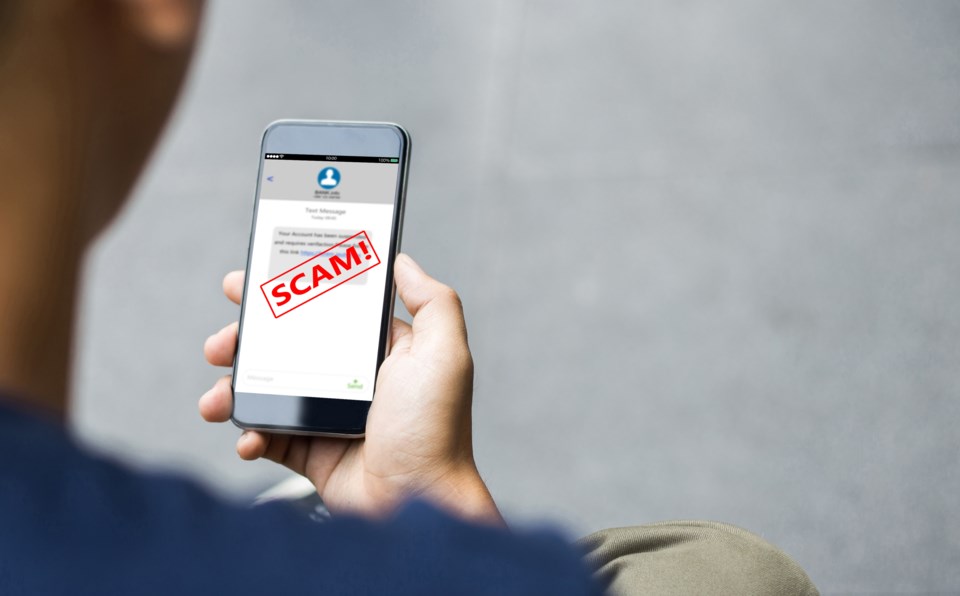Not that you didn't know, but scammers are getting more and more creative.
I almost got scammed recently and since then (just like when you buy a new car and start noticing that every second model on the street is same as yours) I can't have a day when I don't hear about another tricky and inventive type of fraud. And most of them are not some kind of high-scale schemes – just mean efforts to rob people of their hard-earned pennies.
In my case, I got lured by a traditional "real good deal." One evening, about a month ago, I noticed a moving sale ad on one of the local garage sale pages. My alarms should have gotten triggered by prices being on the too-low side, but eh, they are moving, they need to get rid of stuff fast, so it all makes sense, I thought. (It was the first ad of this kind I came across, too). So, I figured I'd try to snap up some cheap appliances.
The person who posted the ad had wedding pictures on their profile, but there was hardly any information. The name wasn't straightforward either – just two female names. Again, no alarms – maybe the profile is private, and I just can't see the rest of their posts, I thought. I messaged them.
Turned out they were in Regina and the equipment I had my eye on was still available, but they wanted a 50 per cent deposit to hold it until I can come over. When I asked if they'd take 25 per cent instead, they easily agreed and provided me with an email for an e-transfer.
When I first came to Canada, I had some trust issues. I naturally tend to trust people, but in Russia, I feel most people are raised not to trust anyone. It took me a while here, but eventually, I absorbed the culture and blended into a lifestyle where a lot of things are based on trusting complete strangers.
So nothing rang the bell until I created a new receiver profile for an e-transfer in my online banking, and the name of the receiver came up as a man's. But I wasn't ready to give up. I messaged them again, and the person on Facebook, assumingly a woman, said she forgot to mention it was her husband's email. At this point, some bells started ringing. So I told her I was hesitant to send money without seeing the items, and she right away gave me the address and said to stop by the next day after 5 p.m., but she wouldn't guarantee the appliances wouldn't be gone without a deposit.
I looked up the address and turned out that my sister-in-law lives on the same street, so I phoned her. She said there is a for sale sign in front of the house, which quickly legitimized the case in my eyes and I transferred the money, saying that my sister-in-law will stop by the next day.
The next morning my money came back, so I tried again – and same outcome. I finally stopped and called my bank.
Thanks to them, I didn't lose any money. Apparently, the email address provided by the "seller" was blocked as fraudulent for a while, and the bank recommended not to try sending any money to those people. Shortly after, my sister-in-law called and said she checked out the listing for the house, and the appliances on the pictures (which were actually coming with the house) had nothing to do with what was posted on social media. By that time the ad was removed from all groups, and shortly after the profile was deleted.
This time I got off lucky, with no losses and just some experience. But since then, I started noticing very similar "moving sale" ads popping up everywhere – they are up for under 24 hours, there is a sense of rush, deals are good and items look appealing, profiles appear somewhat realistic, "sellers" are willing to show what they sell, just not instantly, and ask for a relatively small deposit. (Out of curiosity I checked with some of them).
Another type of scam I came across recently on social media was about a pet or a child (a CHILD!) missing. The ad is asking for help to locate the missing one first, and then, once virally shared, it changes to asking for a money transfer to a particular account or number.
Those guys get creative. It gets more difficult to spot a scam, especially if you haven't come across and fallen for one. But what's even worse than potentially losing money to some tricky cheaters, is that it damages our trust system.
Once a person gets scammed or even just notices that scams are everywhere, it becomes more difficult to believe others, which in turn makes life feel more dangerous and stressful. But I believe we still need and should trust each other.
If something seems like it's too good of a deal, it's probably fake. Besides, if there is an urgent request for money, better look into the details first, and if even one thing seems off, I'd say just stick to your cash.
Please, beware of scammers, but remember that most people are good.



